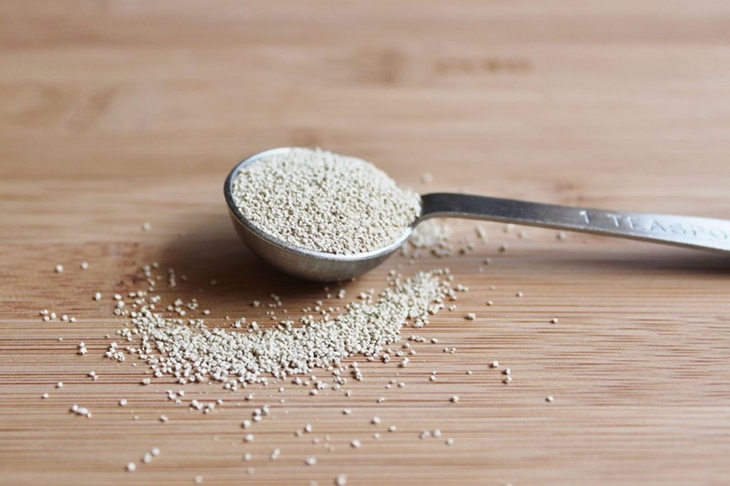26. Yeast

While yeast is unlikely to be a mainstay in your diet on its own, you are likely to consume at least one of the three popular dietary types: baker’s yeast, brewer’s yeast, and nutritional yeast. Some individuals use yeast as a dietary supplement, while others add it to recipes and, of course, bake with it. There is no evidence that eating yeast is harmful to healthy individuals; in fact, it may have some nutritional benefits. Brewer’s yeast, which is derived from the fungus Saccharomyces cerevisiae, is the most frequent variety used as a nutritional supplement. It is also utilized in the production of beer. Brewer’s yeast is high in B vitamins such as thiamine, riboflavin, niacin, pantothenic acid, pyridoxine, folate, and biotin. B vitamins aid in the conversion of carbs, lipids, and protein to energy. Brewer’s yeast also contains significant levels of the minerals chromium and selenium. Chromium aids the body in maintaining a healthy blood sugar level, whereas selenium aids in thyroid hormone production. Baker’s yeast is the same species as brewer’s yeast, however it is a distinct strain. Although this yeast strain includes some nutrients, it is not very nutritionally dense and so is not used as a food supplement. Instead, it’s utilized as a leavening agent in baking to help dough rise. It has trace minerals and is high in folate. Yeast works by eating sugar in the dough and excreting carbon dioxide and ethanol, resulting in the formation of air bubbles in the dough. Fermentation is the name given to this process. Brewer’s yeast provides beneficial bacteria that aid with gut health. Adults may benefit from ingesting 1 to 2 tablespoons of brewer’s yeast each day, according to Wesley Healthcare. According to a 2013 study published in the Iranian Journal of Public Health, consuming 1,800 milligrams of brewer’s yeast per day, in addition to conventional medical measures, can help decrease blood pressure in persons with Type 2 diabetes. To avoid having too much yeast in your body, talk to your doctor about probiotics and supplements.
If you experience gout flares and attacks even after cutting these food items from your diet, make sure to make an appointment to see your doctor and discover what the best solution is for you.



